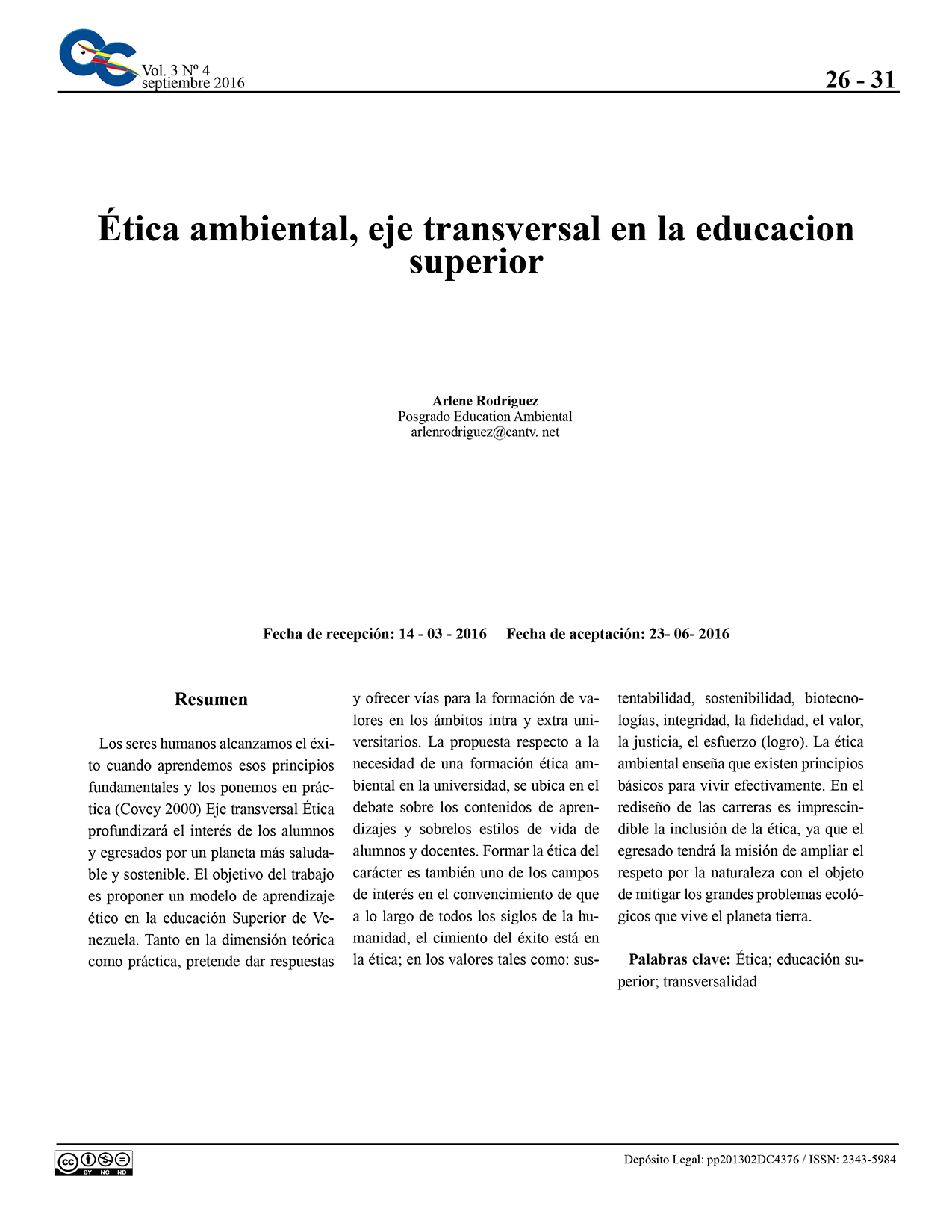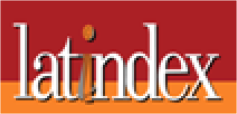Environmental ethics, transversal axis in higher education
Keywords:
Ethics, higher education, transversalityAbstract
Human beings achieve success when we learn these fundamental principles and put them into practice (Covey 2000) Transverse axis Ethics will deepen the interest of students and graduates for a healthier and more sustainable planet. The objective of the work is to propose a model of ethical learning in Higher Education in Venezuela. Both in the theoretical and practical dimensions, aims to provide answers and offer ways for the formation of values in the intra and extra university fields.The proposal regarding the need for an environmental ethics training in the university, is located in the debate about learning contents and about
the lifestyles of students and teachers. Form the ethics of character is also one of the fields of interest in the conviction that throughout all the centuries of humanity, the foundation of success is in ethics; in values such as: sustainability, sustainability, biotechnologies, integrity, loyalty, value, justice, effort (achievement).Environmental ethics teaches that there are basic principles to live effectively. In the redesign of careers, the inclusion of ethics is essential, since the graduate will have the mission of expanding respect for nature in order to mitigate the great ecological problems that planet earth is experiencing.
Downloads
References
Bloom, B. 1980.Taxonomía de Bloom. Mimeo. UNELLEZ-Barinas.
Castro–Pereira, M. 2000. Mapas Curriculares. Universidad de Carabobo (UC) .Valencia.
Covey, S. 2000. Los 7 hábitos de la gente altamente efectiva. La revolución ética en la vida cotidiana y en la empresa. Editorial Paidos. Barcelona, España. pp. 26 – 29.
Martínez, M., Buxarrais, E. y Bar, F. 2002. La universidad como espacio de aprendizaje ético. Revista Iberoamericana de Educación (29):17-18. Barcelona. España.
Morín, E. 2000. Los siete saberes necesarios para la educación del futuro. Editorial Paidos. Barcelona. España. pp. 17 – 43
Rodríguez, A., Palacios, O., López, N., Velazco, C. 2000. Racionalización de los pensa de estudio de los Programas Académicos del Vicerrectorado de Producción Agrícola. Programa RNR. Informe Final. Proyecto de investigación código 23100108. UNELLEZ. Guanare.
Rodríguez, A.2010.Desafíosdelaeducaciónsuperioragrícola delaRegión Andina.Lineamientoscurriculares.Editorial UNELLEZ. Barinas. 227 P.
Tobón -Tobón S. 2005. Formación basada en competencias. Pensamiento complejo, diseño curricular y didáctica. ECOE ediciones Bogotá. 266p

Downloads
Published
How to Cite
Issue
Section
License

This work is licensed under a Creative Commons Attribution-NoDerivatives 4.0 International License.







